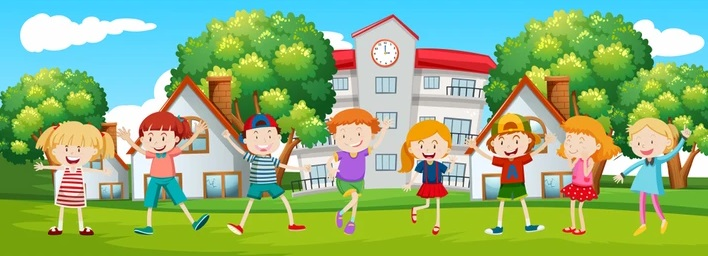Ecological activities
WATER SAVING
THINK ABOUT HOW YOU CAN SAVE WATER
Do you monitor water consumption at home/ at school? How and how often? Is it increasing? Don´t you overuse the chemical cleaners?
What steps do you do to save water?
- Do you have a shower instead of a bath? (Find out how much water you need to have a bath and a shower?)
- Do you stop water while cleaning your teeth?
- Do you use rainwater to irrigate the plants instead of with drinking water?
- Do you use two ways of flushing the toilet (6 or 3 litres)? You can make a water hippo to decrease the amount of a water to flush the toilet if there are not 2 ways of flushing. Can you find out how much water you can save in a week?
- Do you use ecological cleaners when you clean your flat/house/school instead of chemical ones? Try to make your own eco-cleaners, such as a mixture of vinegar and water, citric acid and water,…
- Do you take part in cleaning water sources, such as springs, streams or brooks?
Choose which Sustainable Development Goals (SDGs) is WATER topic included in:


More information about water saving you can find here:
https://www.citronhygiene.co.uk/resources/a-complete-guide-to-saving-water-in-the-workplace
https://www.citronhygiene.co.uk/water-calculator
Video:
ENERGY SAVING
THINK ABOUT HOW YOU CAN SAVE ENERGY
What energy sources do you use for heating and water heating (coal, wood, electricity, gas, others)?
Does the energy source affect the environment negatively or positively?
Do you know your household´s carbon footprint? Try to calculate it here
https://calculator.carbonfootprint.com/calculator.aspx?lang=cs&tab=2
What steps do you do to save energy?
- Do you use energy saving light bulbs at home/at school?
- What type of windows do you have at home/at school? Do the windows influence the energy consumption?
- Do you use a heating control system?
- What is the average air temperature during the heating season at home/at school? Do you know how to measure it and do you record data?
- Which way do you usually ventilate? (Do you ventilate intensively and briefly? Ventilate into the draft?)
- Do you switch off the lights, computer, TV when not necessary? Do you charge your computer/mobile phone during the whole night?

SCHOOL ENVIRONMENT
THINK ABOUT YOUR SCHOOL ENVIRONMENT
Does the places where you spend breaks/ free time at school and outside the school look nice? Do you create a safe environment (wellbeing) at school altogether (students, parents, teachers, other staff)? Do you help each-other?
Do you help decorate your classroom/school? Can you influence the style and type of decorations?
How can you help improve the school environment?
- Do you clean the classrooms/corridors/school surroundings regularly?
- If you have school grounds, do you use it for learning? Who takes care of it? Do you help them?
- What components do you have in your school ground/garden? Can you design and propose any modifications?
- What types of plants do you have there? Are they labelled? If not, can you make labels? Do you take care of plants/can you help/create a schedule for plants care?
- Do any animals live in your school ground/garden? (water, native, exotic, …) Do they have any hiding places? (such as an insect house, pond, a birdhouse, …) Do you take care of animals living near your school? How?
- If you see a sign of non-friendly behaviour, do you know what to do? Do you know how to help and how to ask somebody for a help? Can you help create students´ school wellbeing?

WASTE
THINK ABOUT WASTE
Do you have recycling bins at home/at school? Do you recycle waste regularly? How many kilograms of leaflets are delivered per month to your household/school?
How can you decrease the amount of waste?
- Do you know how to recycle? If not, do you know where to find the rules on separation?
- Do you check whether the waste is separated correctly?
- What do you wrap your snack in (such as in a plastic bag, a lunch box without any other plastic bags or bee’s waxed paper, …)?
- Have you ever been to a landfill/incinerator?
- Do you use recycled paper at home/at school? Do you use paper from both sides/ from the other side? Do you use eco-printing at home/at school?
- How can you prevent waste? (charity fairs, reduce/reuse things, repair and fix things, avoid single-used items such as plastic plates, cups, cutlery, …)

ECO-CONSUMER
THINK ABOUT HOW TO BE ECO-CONSUMER
Do you sometimes throw away unconsumed food? Do you monitor where goods comes from? (local/ national/ imported) Do you often buy in sales, such as 3 for 2? (buy 3 things and pay for 2)
How can you be more eco-consumer
- Watch how much food you throw away at home/at school.
- Do you make compost at school/at home? What do you put in it? What is it used for?
- Do you know about any Eco-labels (such as Fairtrade, Friends of the Sea or Global Organic Textile Standard)? Do you know their meaning? Can you find any of them in a shop/supermarket in your school/home vicinity? Do you buy any eco-labelled products?
- Do you know any eco-producer in your area/town? Can you buy a snack labelled with eco-label, such as Fairtrade? You can check the carbon footprint of a goods here
https://calculator.carbonfootprint.com/calculator.aspx?lang=cs&tab=2
- Can you sell eco-products made yourself?
- Do you/your school/your parents donate a charity? (such as an adoption, natural disaster, …)

Content
- The first action of cleaning parks and schoolyards and recycling collected waste
- The action of creating shelters for animals during the Winter
- Action of giving away bags and informing neighbours about the risks of using plastic
- Making board games from recycled materials
- Creation and positioning of the recycling bins for paper, metal, and plastic
- Making our own compost

